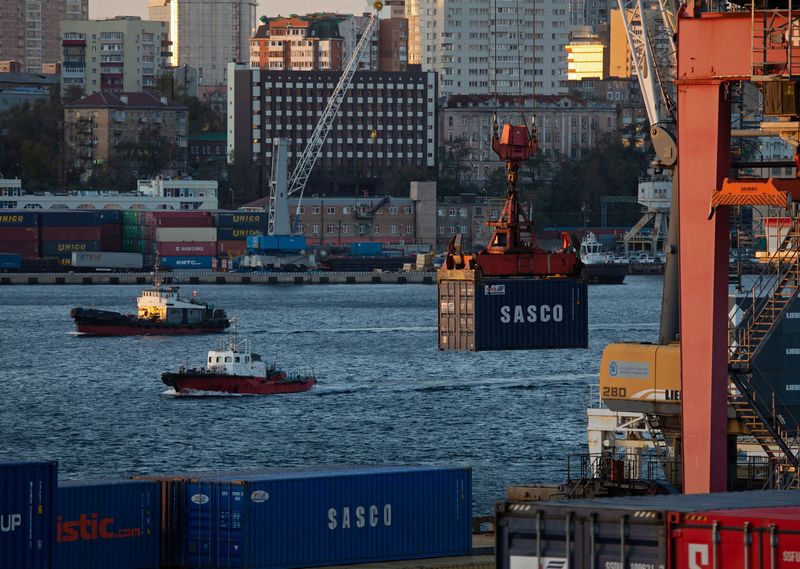By Darya Korsunskaya
(Reuters) -Russian authorities are ready to discuss abolishing export duties based on the exchange rate in return for a "fair" increase in corporate profit tax rates, Finance Minister Anton Siluanov said on Thursday.
President Vladimir Putin proposed higher taxes for companies and wealthy individuals shortly before securing another six-year term in power in March, in an election widely condemned in the West as undemocratic. Russia is ploughing funds into the defence sector to fund its war in Ukraine.
His intervention appeared to ignite discussions within government about what taxes to change. The finance ministry has promised predictability for businesses following abrupt policy changes in recent years, and has been in discussion with Russian business.
"In the course of determining tax innovations, business proposed abandoning the use of turnover taxes, such as 'exchange rate' export duties, which do not take into account its financial result," Siluanov told lawmakers in the State Duma.
"We are ready to discuss this proposal in conjunction with a fair increase in the rate of profit tax on organisations, that is, taxing the final result, not companies' turnover."
Russia imposed export duties linked to the rouble-dollar exchange rate from Oct. 1, 2023, until the end of 2024, on a wide range of goods, while a one-off profit tax in 2023 yielded 318.8 billion roubles ($3.53 billion) for the treasury.
Siluanov said Russia's corporate tax rate of 20% was the one of the lowest among developed and emerging economies, and promised to channel additional tax revenues into supporting business through investments and infrastructure.
He hinted at raising the corporate tax rate to 25%, as in China and Iran. Such a 5% tax increase would bring an additional 1.9 trillion roubles to the treasury, estimated Andrei Klepach, chief economist at state development bank VEB.
Siluanov said his ministry supported a proposal by businesses and lawmakers to not raise the VAT rate, as this could lead to an acceleration in inflation.
INCOME TAX HIKES
For 20 years from 2001, Russians paid a flat rate of 13% income tax, with a progressive band then introduced at 15% for earnings above 5 million roubles. Rates for the wealthiest are set to rise again.
Siluanov said the finance ministry would propose a "reasonable" progression of income tax with 25% as the top rate.
"We will propose a reasonable progression, so that our system is competitive, first and foremost, with our closest neighbouring countries," he said.
Putin and Siluanov have been insistent that society's poorest are not affected. Families with low incomes or two or more children will receive additional benefits.
Siluanov also said that those involved in what Russia calls a "special military operation" in Ukraine would be unaffected by income tax hikes.

As recently as October 2023, Siluanov had promised that basic tax rates such as income tax and corporate profit tax would not change for at least three years.
($1 = 90.2775 roubles)